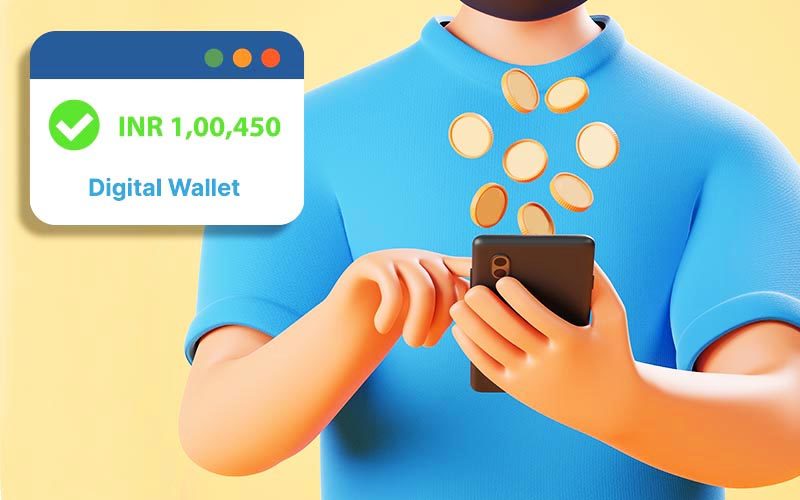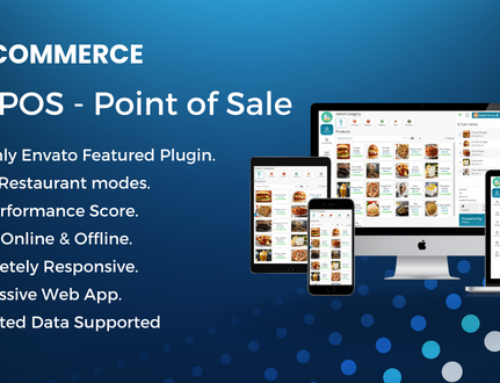About Digital Wallet Platform
Digital Wallets have emerged as a game-changing technology in the payment industry, providing an efficient and secure way to make transactions. A digital wallet is essentially an electronic version of a traditional wallet that allows users to store and manage their payment information in one central location. This payment information includes credit and debit card details, bank account information, and even loyalty cards.
The primary advantage of digital wallets is the convenience they offer. By having all payment information stored in one place, users can make purchases quickly and easily. This is particularly useful for online shopping, where users can simply click a button to complete a transaction without having to manually enter payment information every time. Digital wallets also eliminate the need to carry multiple credit cards or cash, making it a more streamlined and efficient way to pay.
Digital wallets also offer a high level of security. Payment information is typically stored in an encrypted format and protected by additional security measures such as password authentication, biometric authentication, and two-factor authentication. This makes it much more difficult for hackers to gain access to sensitive payment information, reducing the risk of fraudulent activity.
In addition to these benefits, digital wallets also offer a range of other features that can enhance the user experience. For example, many digital wallets offer the ability to track and manage expenses, set up automatic payments, and receive notifications when payments are due. Some digital wallets also allow users to store and use digital versions of their loyalty cards, making it easy to earn and redeem rewards without the need for physical cards.
There are several types of digital wallets available on the market, each with its own unique features and benefits. Some examples include mobile wallets, which are designed to be used on smartphones and other mobile devices, and web wallets, which are accessed through a web browser on a desktop or laptop computer. There are also hardware wallets, which are physical devices that store payment information and require a physical connection to a computer or mobile device to make transactions.
One of the most popular types of digital wallets is the mobile wallet. Mobile wallets are designed to be used on smartphones and other mobile devices, making it easy to make payments on the go. Mobile wallets typically use near-field communication (NFC) technology to facilitate transactions, allowing users to simply tap their phone on a payment terminal to make a purchase. Mobile wallets can also be used to make peer-to-peer payments, allowing users to send money to friends and family members with just a few clicks.
Another popular type of digital wallet is the web wallet. Web wallets are accessed through a web browser on a desktop or laptop computer and offer similar features and benefits to mobile wallets. Web wallets are particularly useful for online shopping, allowing users to quickly and easily complete transactions without having to enter payment information every time. Web wallets also offer a high level of security, with payment information typically stored in an encrypted format and protected by additional security measures such as password authentication and two-factor authentication.
Digital wallets have revolutionized the payment industry by providing a convenient, secure, and efficient way to make transactions. With the ability to store and manage payment information in one central location, digital wallets offer a range of benefits that make them a popular choice for consumers. Whether using a mobile wallet, web wallet, or hardware wallet, digital wallets are a must-have for anyone looking to simplify their payment experience and enhance their financial management capabilities.
How does Digital Wallet Works
A digital wallet, also known as an e-wallet or mobile wallet, is a digital application that allows users to store and manage their financial information, including credit and debit card information, bank account information, and cryptocurrency. Digital wallets enable users to make online payments and in-store purchases without having to physically carry cash or cards. In this article, we will explore how digital wallets work and their various benefits.
Firstly, a digital wallet works by storing the user’s payment information in an encrypted format on their device. The user can then access their digital wallet through an app or website and use it to make payments. Many digital wallets also offer added security features, such as fingerprint or facial recognition authentication, to ensure that only the owner of the device can access the payment information.
When a user wants to make a payment using their digital wallet, the payment information is transmitted securely to the payment processor. The payment processor then checks to ensure that the payment is valid and has sufficient funds available before authorizing the transaction. Once the payment is authorized, the payment processor sends a confirmation message to the merchant or service provider, and the transaction is complete.
One of the primary benefits of using a digital wallet is convenience. Users can store multiple payment methods in a single app, making it easy to switch between payment methods as needed. Additionally, digital wallets can store loyalty program information, allowing users to earn rewards and redeem discounts without having to carry a physical loyalty card.
Another benefit of digital wallets is their security features. Many digital wallets use encryption technology to protect the user’s payment information, making it more difficult for hackers to access the data. Additionally, because the payment information is stored locally on the user’s device, digital wallets can be more secure than traditional payment methods, such as credit cards, which can be lost or stolen.
Digital wallets can also provide users with greater control over their finances. Users can easily track their spending and set budgets within the app, making it easier to manage their money. Some digital wallets also offer features such as alerts and notifications, which can help users stay on top of their finances and avoid overspending.
In addition to traditional payment methods such as credit and debit cards, some digital wallets also support cryptocurrency payments. Users can store and manage their cryptocurrency within the app and use it to make purchases or send payments to other users.
Digital wallets provide users with a convenient, secure, and flexible way to manage their finances. With the rise of mobile payments and the increasing popularity of cryptocurrencies, digital wallets are likely to become even more prevalent in the coming years. If you’re interested in using a digital wallet, be sure to research the various options available and choose one that best meets your needs.
Advantages of Digital Wallet
Convenience: One of the most significant advantages of using digital wallets is their convenience. Users can store all their payment methods and personal information in one place, and make payments with just a few clicks or taps on their mobile devices. This eliminates the need to carry multiple physical cards or cash, making it easier and quicker to make transactions on-the-go.
Enhanced Security: Digital wallets offer enhanced security compared to traditional payment methods. They use advanced encryption techniques and multi-factor authentication to protect users’ personal and financial information. Additionally, since digital wallets don’t require users to physically swipe or insert their payment cards, they reduce the risk of card skimming and fraud.
Rewards and Discounts: Many digital wallet providers offer rewards and discounts to their users, incentivizing them to use their services. For example, some wallets offer cashback or loyalty points for every transaction made using their app, while others offer exclusive discounts and deals on purchases made through their platform.
Easy Budgeting and Expense Tracking: Digital wallets also make it easier for users to keep track of their expenses and stick to a budget. Many digital wallets offer budgeting and spending tracking tools, allowing users to set spending limits, track their spending, and monitor their finances in real-time.
Faster Transactions: Digital wallets also offer faster transaction processing compared to traditional payment methods. Since they are built on a digital platform, they eliminate the need for manual data entry and processing, making transactions almost instantaneous.
Global Accessibility: With digital wallets, users can make payments and transfer funds globally, regardless of their location. This makes it easier and more cost-effective to conduct international transactions, eliminating the need for currency conversions or international wire transfers.
Feature of Digital Wallet
A digital wallet is a software application that enables users to conduct transactions through their mobile devices without the need for cash or cards. The digital wallet stores the user’s financial information, such as credit card details, and enables secure transactions online or at brick-and-mortar stores. Here are some features of digital wallets that make them useful tools for consumers.
Convenience
Digital wallets offer a convenient way to make transactions without the need for cash or cards. Users can add their credit or debit card information to their digital wallets and use their mobile devices to make payments at a variety of merchants. This eliminates the need to carry multiple cards or cash and reduces the risk of lost or stolen wallets.
Security
Digital wallets offer a high level of security compared to traditional payment methods. Most digital wallets use advanced encryption techniques to protect user information and transactions. Additionally, users can add an extra layer of security by using biometric authentication, such as fingerprint or facial recognition, to access their digital wallets.
Loyalty Programs
Digital wallets can also store loyalty program information, such as reward points or coupons, making it easy for users to redeem rewards and discounts. Some digital wallets even allow users to earn rewards for using the app, which can incentivize consumers to use the app more frequently.
Budgeting Tools
Some digital wallets offer budgeting tools that help users keep track of their spending. These tools can categorize transactions, set spending limits, and provide real-time updates on account balances. This can be especially helpful for consumers who are trying to stick to a budget or save money.
Integration with Other Apps
Digital wallets can also integrate with other apps, such as ride-sharing or food delivery apps, making it easy for users to make payments within these apps without the need to enter their payment information each time. This can save users time and reduce the risk of data breaches.
Global Acceptance
Digital wallets can be used globally, which can be especially useful for travelers who may not have access to traditional payment methods in certain countries. Digital wallets can also eliminate the need for currency exchange and reduce the risk of lost or stolen cash.
Instant Payments
Digital wallets can also facilitate instant payments, which can be especially useful for small businesses or peer-to-peer transactions. Instead of waiting for checks to clear or waiting for bank transfers, users can send and receive payments instantly through their digital wallets.
Contactless Payments
Digital wallets can also facilitate contactless payments, which have become increasingly popular during the COVID-19 pandemic. Contactless payments eliminate the need for physical contact with payment terminals, reducing the risk of virus transmission.
Easy Access to Transaction History
Digital wallets can provide users with easy access to their transaction history, making it easy to track spending and identify fraudulent transactions. This can be especially helpful for consumers who may not check their bank statements regularly.
Conclusion
In conclusion, digital wallet platforms have become an essential tool for managing personal finances in today’s digital age. As the use of digital payments continues to grow, we can expect to see even more innovation and advancements in digital wallet technology, making financial management easier and more accessible than ever before.








